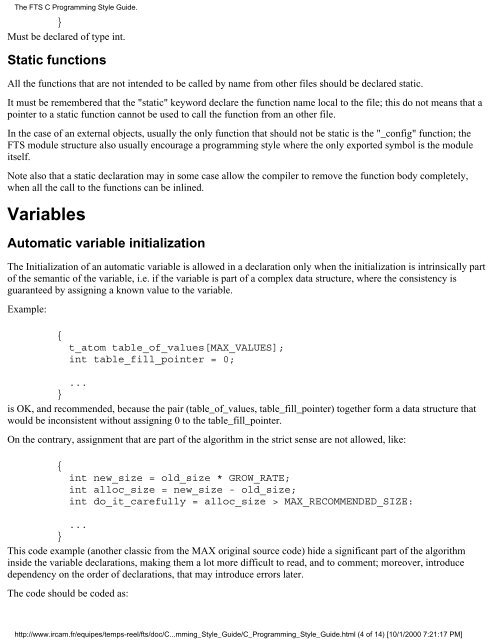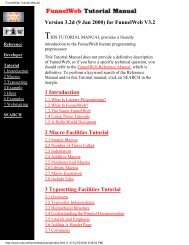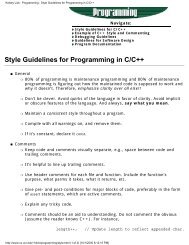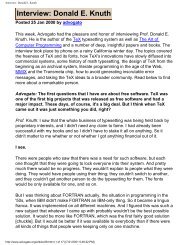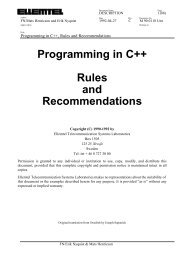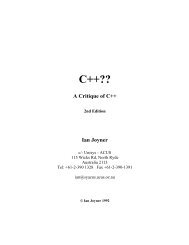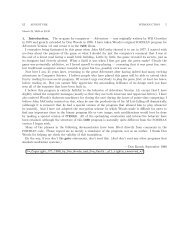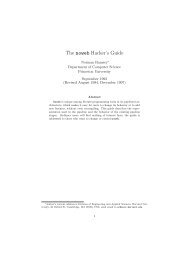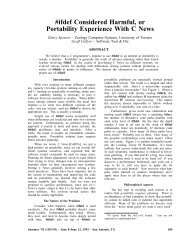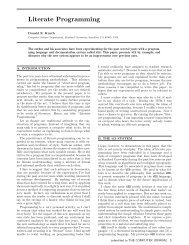The FTS C Programming Style Guide. - Literate Programming
The FTS C Programming Style Guide. - Literate Programming
The FTS C Programming Style Guide. - Literate Programming
You also want an ePaper? Increase the reach of your titles
YUMPU automatically turns print PDFs into web optimized ePapers that Google loves.
<strong>The</strong> <strong>FTS</strong> C <strong>Programming</strong> <strong>Style</strong> <strong>Guide</strong>.<br />
}<br />
Must be declared of type int.<br />
Static functions<br />
All the functions that are not intended to be called by name from other files should be declared static.<br />
It must be remembered that the "static" keyword declare the function name local to the file; this do not means that a<br />
pointer to a static function cannot be used to call the function from an other file.<br />
In the case of an external objects, usually the only function that should not be static is the "_config" function; the<br />
<strong>FTS</strong> module structure also usually encourage a programming style where the only exported symbol is the module<br />
itself.<br />
Note also that a static declaration may in some case allow the compiler to remove the function body completely,<br />
when all the call to the functions can be inlined.<br />
Variables<br />
Automatic variable initialization<br />
<strong>The</strong> Initialization of an automatic variable is allowed in a declaration only when the initialization is intrinsically part<br />
of the semantic of the variable, i.e. if the variable is part of a complex data structure, where the consistency is<br />
guaranteed by assigning a known value to the variable.<br />
Example:<br />
{<br />
t_atom table_of_values[MAX_VALUES];<br />
int table_fill_pointer = 0;<br />
...<br />
}<br />
is OK, and recommended, because the pair (table_of_values, table_fill_pointer) together form a data structure that<br />
would be inconsistent without assigning 0 to the table_fill_pointer.<br />
On the contrary, assignment that are part of the algorithm in the strict sense are not allowed, like:<br />
{<br />
int new_size = old_size * GROW_RATE;<br />
int alloc_size = new_size - old_size;<br />
int do_it_carefully = alloc_size > MAX_RECOMMENDED_SIZE:<br />
...<br />
}<br />
This code example (another classic from the MAX original source code) hide a significant part of the algorithm<br />
inside the variable declarations, making them a lot more difficult to read, and to comment; moreover, introduce<br />
dependency on the order of declarations, that may introduce errors later.<br />
<strong>The</strong> code should be coded as:<br />
http://www.ircam.fr/equipes/temps-reel/fts/doc/C...mming_<strong>Style</strong>_<strong>Guide</strong>/C_<strong>Programming</strong>_<strong>Style</strong>_<strong>Guide</strong>.html (4 of 14) [10/1/2000 7:21:17 PM]


